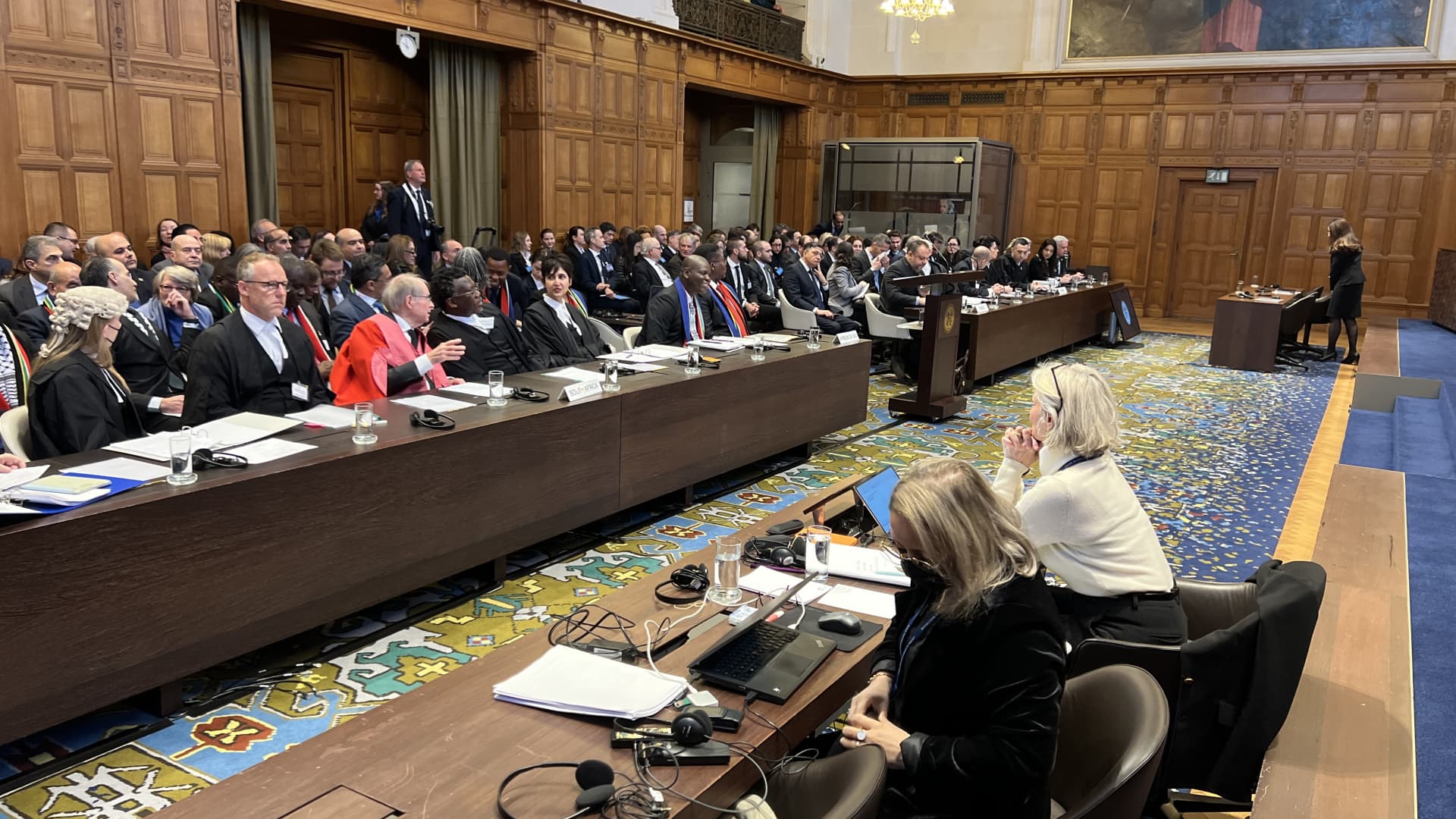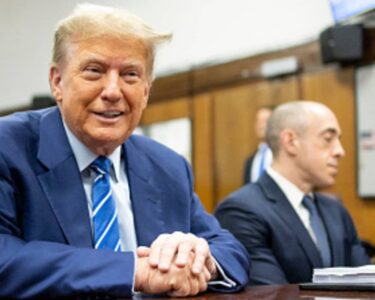The U.N.’s highest court is on Thursday hearing South Africa’s accusations of genocide by Israel in its ongoing war in the Gaza Strip.
The South African government submitted its case to the International Court of Justice, also called the World Court of Hague, on Dec. 29 — nearly three months into a devastating Israeli offensive in the Gaza enclave, which follows the Oct. 7 terror attacks of Palestinian militant group Hamas.
The Israeli offensive has claimed over 23,000 lives in Gaza to date, according to the latest figures from the Palestinian ministry of health.
In its 84-page written filing, South Africa says it “seeks an expedited hearing” and is “making the present application to establish Israel’s responsibility for violations of the Genocide Convention; to hold it fully accountable under international law for those violations; and — most immediately — to have recourse to this Court to ensure the urgent and fullest possible protection for Palestinians in Gaza who remain at grave and immediate risk of continuing and further acts of genocide.”
Israel has dismissed the suit as “blood libel” — a term that describes false and antisemitic accusations of bloodletting levied against Jewish people. Israel is scheduled to respond to the allegations at the ICJ on Friday.
Critics of Israel’s Gaza Strip campaign have questioned the proportionality of its response and the number of civilian casualties as a result of the siege. Israel maintains that it is at war with Hamas, rather than the Palestinian people. It accuses Hamas of weaponizing the civilian population as human shields and deliberately locating its spiderweb of underground tunnels under non-combatant sites in the Gaza territories, such as hospitals and schools.
Belgian Deputy Prime Minister Petra De Sutter on Tuesday telegraphed intentions for her country to echo South Africa’s position.
“I want Belgium to take action at the International Court of Justice, following the lead of South Africa,” she said on social media, pledging to propose this measure with the Belgian government. “Belgium cannot stand by and watch the immense human suffering in Gaza. We must act against the threat of genocide.”
The U.K. has also signaled concerns over the Israeli campaign: “Am I worried that Israel have … has taken action that might be in breach of international law, because this particular premise has been bombed, or whatever … yes, of course I am worried about that,” U.K. Foreign Minister David Cameron said Tuesday.
Ahead of Thursday’s proceedings, Israeli Prime Minister Benjamin Netanyahu once more laid out his country’s aims in the Gaza Strip:
“Israel has no intention of permanently occupying Gaza or displacing its civilian population,” Netanyahu said in a video address released by his office. “Israel is fighting Hamas terrorists, not the Palestinian population, and we are doing so in full compliance with international law.”
He added that once the goals of the Israeli Defense Force offensive against Hamas had been achieved, “Gaza can be demilitarized and deradicalized, therefore creating a possibility of a better future for Israel and Palestinians alike.”
ICJ rulings are “binding upon the parties concerned,” final and hold no right of appeal. While the court lacks the means to directly enforce its decisions, its rulings can deal sharp reputational blows.
The suit comes as fears have risen over Israel’s long-term intentions to potentially occupy the Gaza Strip following its offensive, with Reuters reporting calls from far-right Israeli Finance Minister Bezalel Smotrich for Palestinians to leave the enclave for elsewhere.
Israel’s close ally Washington, whose Security Council Spokesperson John Kirby condemned the South African lawsuit as “meritless, counterproductive, and completely without any basis in fact whatsoever,” has previously rejected a potential Israeli occupation of the Gaza Strip.
The Israel-Hamas conflict has increasingly seeped into international communities, spilling into protests, a rise in antisemitism worldwide and a nascent Red Sea crisis following the involvement of Yemeni Houthi militants, which share Iranian backing with Hamas.






